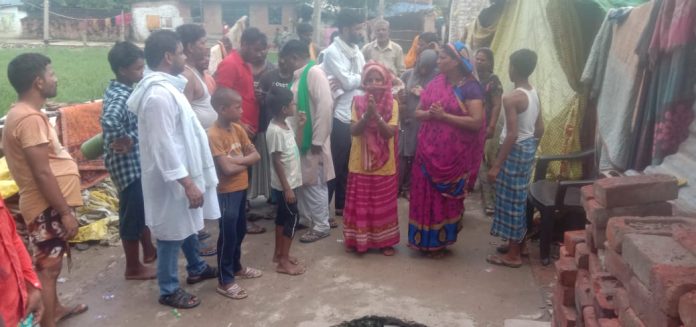Azamgarh, Aug 24: In the small, impoverished village of Seedha Sultanpur, located in the Nizamabad tehsil of Azamgarh district, tragedy has struck the Nut community. Over the past ten days, five children have died from a disease identified as diphtheria, known locally as “Gala Ghoton.” The deaths have cast a pall of grief over the village, which is home to around 500 members of the Nut community, reported The Hindustan Times.
Despite the severity of the situation, it took nearly two weeks for the district health department to respond. Only after these tragic deaths did health officials visit the village, administering vaccines and other necessary medicines. However, the village remains in an appalling state, with no significant efforts made to address the underlying issues of hygiene and sanitation that have exacerbated the spread of the disease.
The deceased children, aged between one and six years, include Mohammad, son of Sohail (3.5 years), Sazma, son of Miro, Ali Raj, son of Khushi, Atif, son of Qais, and a two-year-old daughter of Gudi from Kamravan. Their deaths have left the community in a state of despair, with many parents, like Sohail and Minhaj, grieving the loss of their young ones.
The Nut community, living in extreme deprivation, has little access to education, with literacy rates below one percent. Most villagers survive by begging, selling honey, or trading livestock. They live in cramped conditions, with no proper drainage system, leading to stagnant water and accumulated garbage, which has become a breeding ground for diseases like diphtheria.
Firoz, a resident of the village, expressed the community’s frustration, saying, “We are also human beings, but no one treats us as such. We live in suffocating conditions, and no one is serious about solving our problems. The deaths of five innocent children have shattered our entire community.”
The village of Seedha Sultanpur has a long history, with roots tracing back to Sultan Bahlol Lodi’s reign.
The grief-stricken parents of the deceased children are left questioning the authorities, local politicians, and other organizations: “Do we not matter as humans?” Yet, it seems that no one has an answer for them.
The situation in Seedha Sultanpur is a stark reminder of the need for urgent intervention to address the dire conditions in which the Nut community lives. Without immediate action, more lives could be lost, and the cycle of neglect and suffering will continue.




